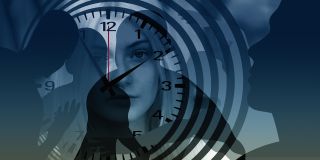Anhedonia often goes unrecognized, even though it is at the core of depression
- Pleasure is essential to daily life.
- Anhedonia is an inability to feel pleasure.
- Anhedonia may be a predictor of poor response to antidepressants.

“How weary, stale, flat, and unprofitable seem to me all the uses of this world!”—Hamlet in Shakespeare’s play. A clearly depressed
A depressed Hamlet can’t find any pleasure in life. The sparkle has gone out of his life, rendering it flat and dull. He has anhedonia, an inability to enjoy life.
Anhedonia is often forgotten in the diagnosis of depression precisely because of its dullness, and its lack of drama. Even sadness has more color and pathos than anhedonia. There is a narrative and a tension to sadness and anxiety that is lacking in anhedonia. And yet, if one analyzes the cluster of symptoms that are commonly found in a depressive disorder, it soon becomes apparent that most of them are not particularly specific to depression. Instead, symptoms such as impaired sleep and appetite, anxiety, depressive ruminations, and other conditions, are all found in a variety of abnormal psychological states, including acute reactions to stress. Anhedonia, on the other hand, is at the very core of depression, almost defining it. Surprisingly, however, research has shown that the presence of anhedonia may be a predictor of poor response to antidepressant treatment, which seems ironic. It is as if the presence of somnolence (the main feature in narcolepsy) was a predictor of poor response in the treatment of narcolepsy.
Different and disparate syndromes
To be fair, much of the confusion one finds in the definitions and treatments of depression is because depression is remarkably heterogeneous, to the point that it could be regarded as a range of different and disparate syndromes, rather than a single illness with a few possible variations.
When we are not depressed, we can find pleasure in the very small joys of daily existence. These joys are so small and so many (smell of coffee, gloves fitting snugly, car accelerating smoothly, sitting on a soft sofa) that they could be termed the plankton or dark matter of pleasure. Life becomes difficult to bear without this plankton of tiny gratifying firings in our brain tissue, but despite the effect anhedonia has on daily life, this symptom is, in my clinical experience, frequently overlooked. This may be related to the fact that we associate lack of pleasure with boredom, which sounds mundane and pedestrian, or because we still regard pleasure with moral suspicion. But pleasure is the salt of life. Without it, it is very hard to feel the motivation to get up in the morning.
It is therefore important to ensure that clinicians look for anhedonia in their assessments, particularly when other symptoms of depression are not well defined. Once recognized, clinicians should, as always, use all the weapons in their arsenal of treatment strategies, including pharmacological and psychotherapeutic interventions.
Pleasure is after all very important. As Frederick the Great allegedly said, pleasure is “the most real good” in this life.
(Please note that the content of this blog does not constitute formal clinical advice)
